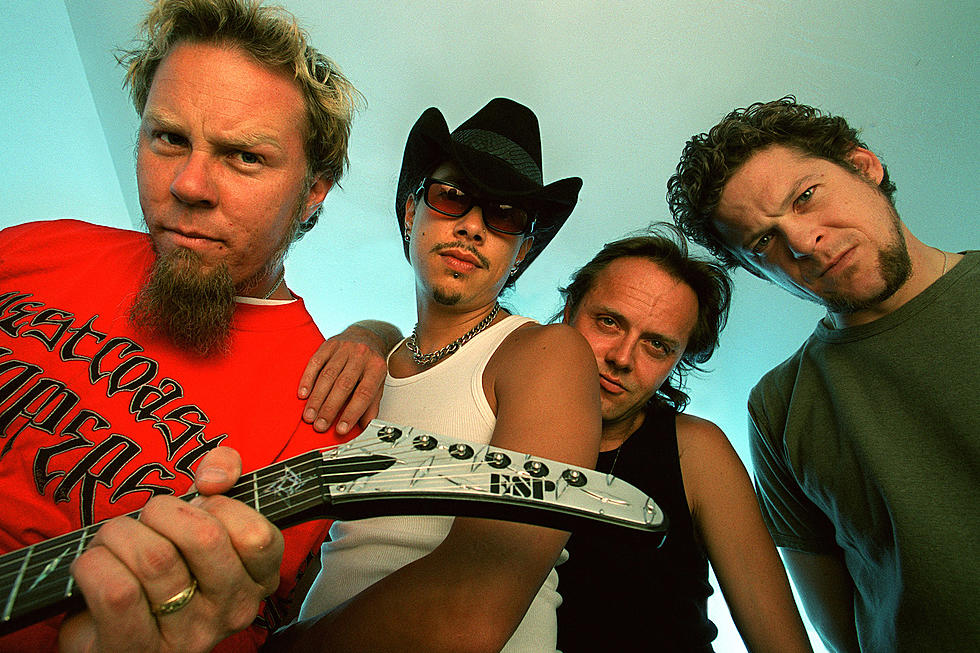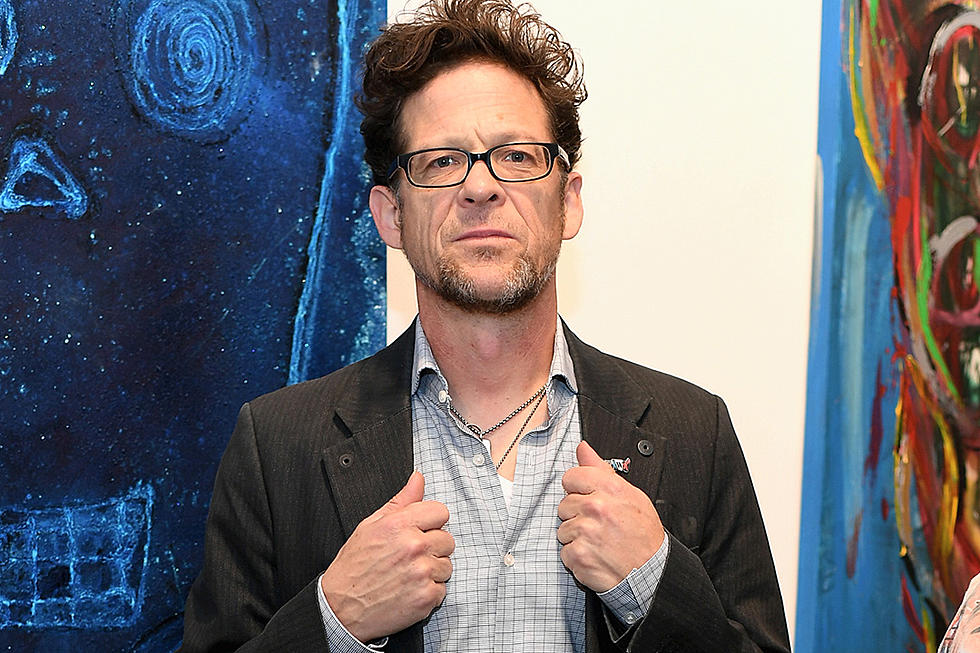
23 Years Ago – Jason Newsted Leaves Metallica
“It wasn’t easy to walk away from them,” ex-Metallica bassist Jason Newsted told me almost nine months after he left one of the biggest band in metal on Jan. 17, 2001. “The first couple months were real fucked, and then I slowly came out of my depression and got back on the horse with my new band Echobrain.”
At the time of his departure, Newsted said he left Metallica because it was impossible for him to play a more creative role in the band and that Metallica was spending too much time fighting Napster and not enough time working on new music. But most significantly, he said he needed time to recover from neck and back injuries he sustained from headbanging.
“Watch a couple videos from 1990 and it’s not hard to figure out how I damaged myself,” he said. “I mean, 200 days a year I would give myself full-on whiplash. In 1990, the doctor told me to stop doing that. Well, I did 10 more years of it after that and now I’m kind of in this spot. I can’t perform as the performer people know me as, like a complete psycho. Doing that kind of touring is not in the cards for me right now.”
Metallica — Live in 1990
In a 2013 interview with Scuzz TV, Newsted revised his position, stating that his departure from Metallica stemmed mostly from his dedication to Echobrain and the band’s management’s interest in the side project -- an interest that wasn’t shared by Metallica frontman James Hetfield.
“Management wanted me to do Echobrain also, with Metallica,” Newsted said. “They felt Echobrain was that good. The singer was that good, and it didn’t affect Metallica because it was a totally different kind of thing, and I was in Metallica; that would give it its pedigree already.”
Newsted said Hetfield became defensive and territorial when he learned that management was interested in Echobrain. For Hetfield, Metallica was the be all and end all for any of its members. No one was to step outside of the circle and tour with any major side projects.
Echobrain — Live (2002)
“He was, I think, pretty much out to put the kibosh on the whole thing because it would somehow affect Metallica in his eyes,” Newsted told Scuzz TV. “…I have no idea what [Hetfield] was thinking, other than just protecting what he valued, just like he does; that’s his thing. He protects what he loves, squeezes it too hard, like he said himself. Squeeze it too hard, protecting it too much. That’s where I was coming from. The people that I had counted on for 15 years to help me with my career, help Metallica, take care of my money, do all of those things, told me, ‘Your new project is fantastic, we’d like to help you with it.’ James heard about it, the manager calls me back a couple of days later — ‘Sorry we’re not going to be able to help you with that Echobrain thing.'”
In a statement issued after his departure, Newsted, exhibiting the fine art of diplomacy, said, “This is the most difficult decision of my life, made in the best interest of my family, myself, and the continued growth of Metallica. I extend my love, thanks, and best wishes to my brothers: James, [drummer] Lars [Ulrich], and [guitarist] Kirk [Hammett] and the rest of the Metallica family, friends, and fans whom have made these years so unforgettable.”
Behind the scenes, Newsted was more defensive. “It was like having two of my children taken away from me,” he said. “They went about it all wrong. It just wasn’t right.”
In response to Newsted’s decision to quit, Metallica issued their own statements. “James, Kirk and I look forward to embracing the next chapter of Metallica with both a huge amount of appreciation for the last 14 years with Jason and the excitement of rising to the challenges that lay ahead to make Metallica shine brighter than ever,” said Ulrich. “We part ways with Jason with more love, more mutual respect, and more understanding of each other than at any other point in the past.”
“Jason is our brother,” added Hammett. “He will be missed.”
READ MORE: Jason Newsted Reveals What He Thinks His Biggest Strength Was in Metallica
Newsted joined Metallica in the fall of 1986 after the tragic death of bassist Cliff Burton. He came from the Metal Blade band Flotsam And Jetsam and was recommended to Metallica by Metal Blade president and CEO Brian Slagel. Metallica also wanted Joey Vera to audition, but he decided to remain in Armored Saint, the band he grew up playing with. Metallica’s A&R man suggested Phil Caivano, who went on to play with Monster Magnet, and also plugged Newsted.
Metallica — Live in 1986 With Jason Newsted
“It bothered me for a moment because I knew it was going to upset the apple cart with the boys in Flotsam," Alago told Louder Than Hell: the Definitive Oral History of Metal. “But Jason had the same kind of charm and integrity [as Burton did]. And his bass playing was wild and animated. I knew he would be the perfect fit for the guys.”
In truth, Newsted helped save Metallica in a moment of great crisis. They were shaken by the death of Burton and needed a tight, professional player that would help them jump right back into the driver’s seat. Problematically, Metallica never took any time off the road to grieve for the loss of their friend and they remained angry and hurting while they were on the road. They didn’t blame Newsted for Burton’s death, but he was an easy target to gang up on, and they hazed him mercilessly. Newsted was resilient and thick-skinned, and he played great onstage; he was soon embraced by fans and critics who never imagined anyone could replace Burton. Newsted played on six Metallica albums, …And Justice For All, Metallica, Load, Re-Load, Garage Inc. and S&M. During his 14 years in the band, he performed over 1,000 gigs and toured around the world multiple times.
Jason Newsted Reflects on Metallica's ...And Justice for All
“Playing with someone who has such unbridled passion for music will forever be a huge inspiration,” said Hetfield in Metallica’s statement. “On stage every night, he was a driving force to us all, fans and band alike. His connection will never be broken.”
Loudwire contributor Jon Wiederhorn is the author of Raising Hell: Backstage Tales From the Lives of Metal Legends, co-author of Louder Than Hell: The Definitive Oral History of Metal, as well as the co-author of Scott Ian’s autobiography, I’m the Man: The Story of That Guy From Anthrax, and Al Jourgensen’s autobiography, Ministry: The Lost Gospels According to Al Jourgensen and the Agnostic Front book My Riot! Grit, Guts and Glory.
Top 66 Rock + Metal Bassists of All Time
Gallery Credit: Loudwire Staff
More From










